CFCA's Erik Childress talks 7th annual Chicago Critics Film Festival, as events director and fan5/17/2019 The 7th annual Chicago Critics Film Festival kicks off tonight at the Music Box Theatre in the Wrigleyville neighborhood of Chicago and runs a full week through Thursday, May 23. Many hits and talked-about films from the major festival circuit will be making their Windy City premieres during the seven-day event, with plenty of guests to discuss the showcase of their filmmaking efforts.
0 Comments
The Chicago Critics Film Festival, the first known film festival programmed and selected by a critics organization, opens its 7th annual lineup at the Music Box Theatre May 17-23 with an impressive lineup of hits from Sundance & SXSW, guests and a notable sci-fi horror classic.
In 2015, Wizard World Chicago put on quite the show. That’s never any surprise, really. The appearances they have been able to get ranges from good to super. Whether it’s Chicago-raised Michael Shannon in advance of the anticipated “Man of Steel” in 2013 or Kevin Smith multiple years in a row back in the day, Wizard Entertainment always makes a grand spectacle in the Second City.
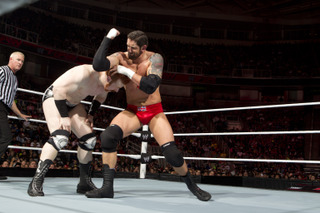 Submitted by Matthew Sheehan on Sat, 5/31/2014 Despite what his moniker says, Bad News Barrett does have some good news. This Sunday, June 1, the English Superstar of World Wrestling Entertainment will be defending his Intercontinental Championship against veteran performer Rob van Dam at WWE Payback at the Allstate Arena in Rosemont, Ill. The four-time Intercontinental champion is looking to make his own mark at an arena that has already had plenty of iconic moments in WWE history--from the Wrestlemania 13 'I Quit' match of Bret Hart vs. "Stone Cold" Steve Austin to The Rock challenging Hulk Hogan to an Icon vs. Icon match at Wrestlemania X8. Barrett's favorite moment in Chicago? You'll have to wait until Sunday night. "I've never had the ebst luck in Chicago," he said. "I'm looking to stamp my authority on that crowd. This is my chance to create some memories in Chicago." Barrett first debuted on WWE television as Wade Barrett, a leading member of The Nexus, a group of up-and-coming Superstars from the WWE developmental program known as NXT. Led by Barrett, the Nexus invaded the WWE main roster and terrorized the talent roster, claiming it's time for some new blood to establish themselves in the squared circle's spotlight. Upon his disassociation with the Nexus, Barrett led himself on a 'Barrett Barrage' gimmick, looking to beat and bash his opponents enroute to championship glory while employing Barrett's past as a bare knuckle brawler as inspiration. Late last year, Barrett brought forth his current--and most successful--gimmick, that of Bad News Barrett. Originating on wwe.com online show "JBL and Cole Show," Barrett began giving promos of a negative nature, knocking local citizens of the town WWE was performing in or bashing local sports teams. This incarnation of the character appears to be 'getting over' with audiences, both live and watching on TV at home. Barrett became someone they loved to hate. Barrett attributes this success to the WWE creative team. "They got behind me, they got behind the character and gave me an outlet to create a Superstar that people can connect to," he said. "It's the opportunity to get on the microphone and talk and perform and get highlighted on the show." Barrett is also no amateur: he's been wrestling for 11 years. He credits this constant learning over the years as another reason why the WWE Universe has taken a liking to Bad News Barrett. "I think people can see I am enjoying myself and having fun," Barrett said. "People seem to relax and enjoy it a bit more. It's helped me connect with the crowd." According to Barrett, he and fellow Superstar Cody Rhodes created the character for the "JBL and Cole Show" based on Rhodes' suggestion. "We've got some great writers on that show who come up with these ridiculous scenarios," Barrett said. "And we see where it will take us." Once the character hit the main WWE TV airwaves, Barrett credits not only himself but others with being collaborative in terms of character input, including the boss himself. "The creative team has direction, brings suggestions," he said. "[WWE Chairman] Vince [McMahon] himself has been very hands-on with the character. There's some things I bring to it, there's some things they bring to it, and, together as a team, we move forward with it and the reactions we've been getting." Those reactions, initially 'cheap heat' with the aforementioned knocking of local cities, began to take a life on it's own. Getting over that initial establishment of the character was the natural step one. "Whenever you introduce a new character, it's going to take a little while for people to embrace it, especially when it was something completely different that I've done in the past," Barrett said. Barrett says he suggested bringing a gavel down to the 'Bad News' podium to help him "not feeling it." This led to the podium next to the ring announcers become one next to the stage that elevated five feet in the air and, eventually, thirty feet. Barrett compares the evolution of any character that generates before a live crowd to that of a moving body of water. "It's like a river meandering down, past obstacles," he said. "We keep adding to it, and we get where we want to be." As for that rising podium, I'm not the first to inquire if Barrett is afraid of heights. "That's exactly what Vince said when I told him about the elevating podium," Barrett said. The genuine moment of creativity Barrett was proud to bring to the boss transformed into terror. "Vince's immediate response [to the idea] was, 'I hope you're not afraid of heights,' and then he walked off," Barrett said. "Then, I got a little nervous. Fortunately, I am not afraid of heights, but those podiums are pretty wobbly when they get to the top." Barrett's beginnings in NXT helped shape this and each version of himself. Barrett was a member of the debut class of NXT, and he credits this a major cornerstone in his career and the shaping of future Superstars. "I definitely needed to convert myself from a European wrestler into this WWE-style sports entertainer," he said. "With the performers down in NXT these days, you can see firsthand they've grown the developmental system. You've got an amazing facility down there that's producing people like the Shield and the Wyatt family, who are incredibly polished performers before they even set foot into WWE. "I think it's great the system is there. It clearly works, and it's producing some amazing performers." According to Barrett, he says the UK is the second biggest market after the US for WWE and the wrestling business. Naturally, England has produced it's fair share of popular and talented in-ring performers, including the "British Bulldog" Davey Boy Smith and William Regal. Barrett highlights current Britons like Divas champion Paige and NXT star Adrian Neville are future stars to carry the 'across the pond' lineage, as well has being quite humble in his own small part of it. "It's great to we bridge that legacy in WWE," he said. "I'm very excited to be one of those guys." Barrett lists many past wrestlers of inspiration--Bret Hart, "Ravishing" Ric Rude, "Macho Man" Randy Savage, the Ultimate Warrior--but his favorite was Davey Boy Smith, the "British Bulldog," who was from near where Barrett grew up. "I was very proud he was the biggest, strongest guy and he was where I was from, so I thought he was very cool," Barrett said. Barrett's dream opponent not only would be SMith, but would be his match vs. Hart at Summerslam '92, held at Wembley Stadium in the UK. "I would've loved to have been involved," he said. "That would be my ultimate match fo all-time." As for this Sunday's match, Barrett simply wants to go out and do his best. "I know Rob very well, and I think I know his weaknesses pretty well," Barrett said. "Believe me, he's got a lot of offense. He's got a lot of extreme kicks and high-flying stuff. I want to go out there and put in the best performance we can. Hopefully, we can give the Chicago crowd a reason to remember Bad News Barrett." 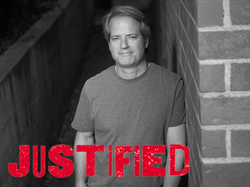 Submitted by Matthew Sheehan on Thu, 03/13/2014 Next month, FX's "Justified" wraps up it's fifth season, the finale before next year's sixth and final season of the television series inspired by the stories of Elmore Leonard, centered on the late author's deputy US Marshal protagonist Raylan Givens, played by Timothy Olyphant, and his ties to his old stomping grounds of Harlan County and the criminals that run it, including Raylan's old friend Boyd Crowder, played by Walton Goggins. Series creator, executive producer and showrunner Graham Yost has taken Leonard's character of Raylan from two short stories and transformed him into one of TV's most dynamic personalities. Yesterday, Yost graciously spoke via phone from Los Angeles about this season's full-circle theme, the influence Leonard still has over the show and the show's niche ability to cast uniquely perfect guest stars, including a new one for next week's tenth episode of the current, fifth season. Q: I've been a fan of the show since the beginning. However, my one issue with the first season was the lack of Raylan's everyday, policing activities tied directly into the business of Harlan County. That part was fixed in season two as many of the usual Marshal business Raylan is responsible for is woven into the Harlan side of things, and that has continued throughout the series' run. Yet, there was one episode of such a police procedural-type story this season that, tied with many of the characters going back to their old habits, my initial criticism of season one might be wrong. This fifth season seems like the show is going coming full-circle. Do you see it that way? First of all, I and a lot of people on the show were critical of the criticisms of the first season. "It was a good season of television! C'mon!" But a lot of the first season was us finding the show. Some episodes are dramatically better than other episodes. There were a lot of lessons. THere were a lot the network and other producers said to me, "Here's a problem." I said, "No, no. Its not a problem." But then it became, "Yeah, you were right. It was a problem." The thing also about the first season was that we could use Walton until the eighth or ninth episode. We could use for bits here and there, but he was off in Hawaii and Texas doing "Predators." So we couldn't incorporate that much of Boyd into the story. Really, the first season is a tale of two seasons. The big story kicks in with Boyd's release from prison, and it became more again about Raylan and Boyd. We felt that the first season ended well, and there were good episodes in there. It was us finding our way, hour by hour, feeling our way in the dark. In the second season, we came up with what became the template for series, which is "What is the big story for the season? Whoa re the antagonists? What are the obstacles?" That's all part of my defense of the first season. But, yes, our plan--and you'll see how the rest of these season plays out, where it leaps off and what its tending toward in the sixth and final season--is there is a full-circle aspect to what we're playing with. Q: Going into this season, were you aware that the sixth season would be the show's last? About a year ago, someone at FX first pitched me of doing an extended season, say 20 episodes, and break it into two, thereby extending the life of the series into seven years of the release of shows. I talked it over with the other executive producers and Tim [Olyphant]. So much of it comes down to Tim, what we want to do and what we're feeling in terms of the show. There were some people more than willing to do that 20-episode plan, but there was a feeling of exhaustion. We did not know how we'd get through a 20-episode season. We're all pretty drained after 13. But the bigger point was the amount of story we had. In the fourth season, we delayed the first curve of Raylan and Boyd until the fifth episode. In this season, they don't see each other until the fourth, then ninth episode and you'll see in subsequent episodes. There is only so many Raylan and Boyd scenes we can do because the series, ultimately, boils down to Rayaln and Harlan and, by extension, Raylan and Boyd with Ava. There was that feeling that we can see our way until a sixth season, but anything beyond that, our fear is we would either run out of story or we would start treading water and repeating ourselves. Q: Have you had an idea in place for the end game of "Justified" going into this season or even when the show started? We always kick around ideas, and the momentum for that kicked in last year, more than any other seasons. Sure, we've always been thinking about how the series was going to end. The first thing is that it changes year-by-year and month-by-month. I had an idea earlier this season, about six months ago, but now I've got a very different idea. We keep playing around with that, and we do talk about that. We talk about it in the writers' room and writer-to-writer. We talk about it with Tim, Walton and Joelle [Carter, who plays Ava Crowder]. Not to sound very highfalutin, but there is the old line of Eisenhower: "Plans are useless, but planning is [indispensable]." Meaning, in this case, its important we have to be thinking about how the series ends but always know that might change. And that happens episode by episode, scene by scene. We have certain goals for the end of this season, and we've gotten there, but they're not exactly what were thinking four or five months ago. Q: The one thing I love that "Justified" does is the unique choices made for casting guest stars. Ranging from Margo Martindale in season two Neal McDonough in season three to Eric Roberts this season. Even getting Dave Foley and Will Sasso to play Canadian drug dealers. I know Foley is, but is Sasso Canadian as well? Yes, we insisted we cast real Canadians. We were under the misapprehension that Dave Coulier was Canadian because he had a relationship with Alanis Morrisette. It turns out he's not Canadian; he's a Michigander. So we had to take him off the list. We lucked out getting Will and Dave. Q: What do you look for when casting there guest spots? Honestly, more than anything else, it comes down to a sense of humor. It can be a wry, very dry sense of humor. It doesn't have to be as Will Sasso and Dave Foley, who are two very accomplished comic actors. With something like that, you just know the scene is going to work. As long as you give them something reasonable to say, it is going to be fun. Then you have Margo Martindale, who has an incredible sense of humor and comic timing. She can bring that to a very monstrous part--a monster with a huge heart, but nonetheless a monster. It's really humor because Elmore Leonard's stuff is sharp with humor. There's a likeness to it, even with the darkest characters. We're always looking for that int he actors. Q: Is there a particular charter you like to write dialogue for? So much of it boils down to Raylan and Boyd. Obviously, Boyd is fun to write for because he has a colorful way of speaking. And Walton brings a lot to that. He'll go through a script and say, "What if I said this here? What if I extended this line? What if I cut that line?" The biggest input is Tim. On one hand, writing stuff for Raylan can be tough because Tim will throw out and come up with other things. But there is something about Raylan's attitude towards the world that is fun to write. There is a real honesty to him. There is certainly a grouchiness, a grumpiness to Raylan, a 'no bulls**t' approach to the world. He sees things in a very simple and straightforward way, but he also enjoys to turn a phrase. He likes putting things the right way to get attention, to put the criminals back on their heels, to woo a woman. All of these things, he uses words in a very particular way. The truth is, it all falls under the umbrella of Elmore Leonard. All of his characters are fun, in one way or another. Character by character, book by book, there's something entertaining about each one of these characters. To that extent, their all fun to write. Q: I did a conference call for season two with Timothy Olyphant. I shared my observation that Raylan struck me as an extension of Elmore Leonard. Leonard never dove right into Hollywood, always walking along the edge, and Raylan walks his own tightrope between the lawless aspect of Harlan and the side of law enforcement. In this season, we see more characters walking that tightrope between right and wrong. That's very true. Everyone in the show this year makes a deal with someone that turns out to be a big mistake. They've got a goal, they're heading for something, but they are allying themselves with people who turn out to be bad actors doing bad things. There is a tightrope, particularly with Raylan, who crosses a huge line at the end of last season. So we knew there would have to be repercussions. Q: That reminds me of the last shot in last season's finale, where Raylan is sitting at the Givens' home in silence, staring at the tombstones. For some reason, the scene from "The Untouchables," in which Kevin Coster laments out of frustration to Sean Connery that he's broken every law he's sworn to uphold, he's "become what I have beheld." And I kind of think that might've been going through Raylan's head in that final scene of season four. He crossed a line that forever alters him and those around him he cares for. I think you're giving Raylan too much of a self-critical sense. I think Raylan would be sitting there not out of a huge sense of satisfaction but thinking, "Well, I did what I had to do." He called it the way he called it. Raylan isn't someone to arrange the death of [Detroit mob boss] Nicky Augustine and then gone to his boss and say, "I did it." He does have some self-critical aspects: "Was that the right choice?" From the pilot, he says, "I never thought of myself as an angry man." There is some self-awareness. I don't think he was thinking about what was going to transpire. He thought he'd taken care of the situation. Q: I see Elmore Leonard gets an executive credit, and it got me thinking. Does the thought ever come up, "What would Elmore do?" especially now that he is no longer with us? Absolutely. You probably heard the story about the bracelets that have the letters 'WWED'--"What Would Elmore Do?" That is something that is always on our mind. It's not so much when we're at a quandary or we're in a corner and think "What would Elmore do? How would he get out of this?" It's something more when someone pitches something, and we say, "That is very Elmore." It's very much how episode nine ends with how Dewey [Crowe] drives off. When the writers came into the room and pitched me that, I said, "Wow! That is very Elmore!" Q: Any hints as to how we can see this current, fifth season end? Every season, we try to end with some questions but with a certain sense of completeness. In season two, the death of Mags wraps up and, to a degree, the Bennett story. In season three, it is the end of the Quarles' story. In season four, we answer the Drew Thompson question and Raylan [crosses the line]. In season five, you'll find a resolution to the story of the Crowes, but there is stuff that happens that points to where we'll be going in season six, more than any other season has lead to the subsequent season. For season five and six, we thought, in a sense, were one big season. That's something a little different. Q: I don't know if you can tease anything for next season, but I'm guessing it'll end up coming down to something between Raylan and Boyd. Our dream is to have everything come back to where it started, which is with Raylan, Boyd and Ava. We still don't know how we're going to get there. Then there's the wild card in the mix. You're going to see a character introduced in the next episode named Katherine Hale, played by Mary Steenburgen, who will be part of that whole, big story next year. Graham Yost photo by John Lavet. Photo and title treatment courtesy of FX Networks. 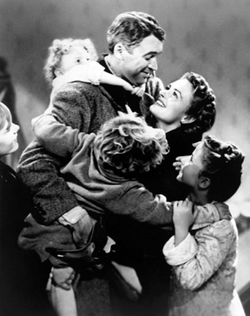 Submitted by Matthew Sheehan on Wed, 01/08/2014 There are certain staples of the Christmas season. Family and friends gathering for joyful parties, feasts with food o' plenty and films that touch, warm and brighten the holidays. We've seen many movies with ranging tones--from "White Christmas" to "The Ref"--bring smiles to the masses. But before Ted Turner gave the world 24 hours of back-to-back "A Christmas Story," there was one film that still thrives today, on constant rotation leading up to and through December 25 every year: "It's A Wonderful Life." Known for it's distinctively American twist on Charles Dickens' "A Christmas Carol," singular director Frank Capra didn't get to see his film become as wildly popular as it has become. Upon it's initial release, a wide berth of critics dismissed it, saying that Capra had lost his touch with the audience. What also hurt was stiff box office competition couldn't even allow the film to barely break even, earning enough money to place 26th in box office earnings out of over 400 releases for that year, just ahead of another soon-to-be Christmas treasure--"Miracle on 34th Street." However, as the film collected dust somewhere on a shelf, people slowly began to discover and truly appreciate the message Capra and his cast wanted to express, and critics began to back it as well. The AFI has recognized it on several of their themed 'Best of...' lists (11th on 100 Greatest American Films of All-Time, 3rd Fantasy Film and the characters of George Bailey and Mr. Potter each placed as the no. 9 hero and no. 6 villain, respectively), and, in 1990, joined the preserved films of the National Film Registry by the US Library of Congress as it had been deemed culturally, historically, or aesthetically significant." Through the highs and lows the film has gone through--ironic given the film's plotline that adds the 'What if?' element had the film been a beloved success from the start--"It's A Wonderful Life" has thrived on the famous line, "Every time a bell rings, an angel gets his wings." While the angel known as Clarence first says it, it is George Bailey's daughter Zuzu and her delivery that is most used, referenced and remembered. The young child actress held by her film father Jimmy Stewart is Karolyn Grimes, who now goes across the country--and even has her own fan club--to present the film at various theaters with Q&As, signed merchandise and photo ops. Just last month, Grimes made her annual holiday season appearance at Hollywood Blvd. Theater in Woodridge, Ill. She was gracious enough to sit down with Hollywood Snitch after Matt rewatched it fresh to discuss "It's A Wonderful Life" and it's impact both on society, pop culture and her own life It had been a while since I'd seen this, probably a good 3-4 years. Since then, I've gotten married, and this is the first time the ending has left me choked up. Maybe the fact that there's more family and children somewhere down the road it why I felt a little teary-eyed. Yes! You're beginning to identify with it. I did want to get a question about the bell ringing and angels getting their wings. Even though you're not the only one to say it, Zuzu's take is the one most referred to and used. Has that come to define or affect your life? Absolutely! Everyone remembers this weird name Zuzu and this line. So in 1980, when I was asked "Are you that girl Zuzu?" In the following weeks, I started getting fanmail. I started thinking, "This is something really special." So I watched the movie, and it was special. I saw what they were doing. It's a wonderful story that is uplifting and inspirational. It touches everybody's lives because who doesn't goes through life without bumps in the road, so to speak. Plus, whose dreams really ever do come true? It doesn't happen, most of the time. You get a chance to look at your own life and realize you've touched lives. What you are is really good. You've got family, you've got love, you've got friends. You realize how wonderful your life really is. The movie does that. We all have flaws, and everyone matters. You spoke of the tiny, hidden bits in the film during the introduction to the film I was at. And speaking of subliminal messages, I read that Frank Capra was quite a conservative Republican who campaigned against Franklin D. Roosevelt, and I noticed something on my own while watching it this time. On the wall of the office of Bailey Bros. Building and Loan, there is a photograph of Herbert Hoover, a Democrat whose presidency was mired by Americans forced out of their homes and into shacks during the start of the Great Depression, with one such gathering of shacks was dubbed Hooverville. Plus, Mr. Potter is in a wheelchair with very much an FDR look to him. I didn't notice that! Just like Pottersville [in the film]. That is very interesting! The president of my fan club will love to hear that. There's also a line Mr. Potter says, "Ideals with common sense can ruin this town." That is something else I picked up on. Is there something new that you pick up on each time you watch it? Sometimes. For instance, when George and Mary are giving wine and bread to the Martini's who are moving into a new home, the Wainwrights stop by and ask Mary and George to go with them. Mary then rubs her tummy and looks up at George. That night is when she tells George of her being pregnant. There are tiny, little things [Capra] put in that movie throughout. It's amazing. He was such a perfectionist. As a child on the set of "it's A Wonderful Life," are there any memories that stand out of Jimmy Stewart, Donna Reed or Frank Capra? I take away from what I saw as a little kid was that it was fun. Frank Capra was a guy who was very gentle. The stars were very nice. It was a very comfortable set and stress-free. Capra was very much a family man. He was a genius with a heart of gold. There are many movies for Christmastime that carry special meanings for many different people. What does "It's A Wonderful Life" mean to you? Well, it's my livelihood. It's my favorite time of the year. Christmas has always been my favorite time of the year, but what makes it so special to me is the people. I love people who love this movie. Their eyes fill with tears because they love the movie so much. It's such a part of their lives and so much in their hearts. Who couldn't flourish under that for [the holidays]? It has touched their lives. Top photo courtesy of NBC Universal. Bottom photo courtesy of Matt Sheehan
|

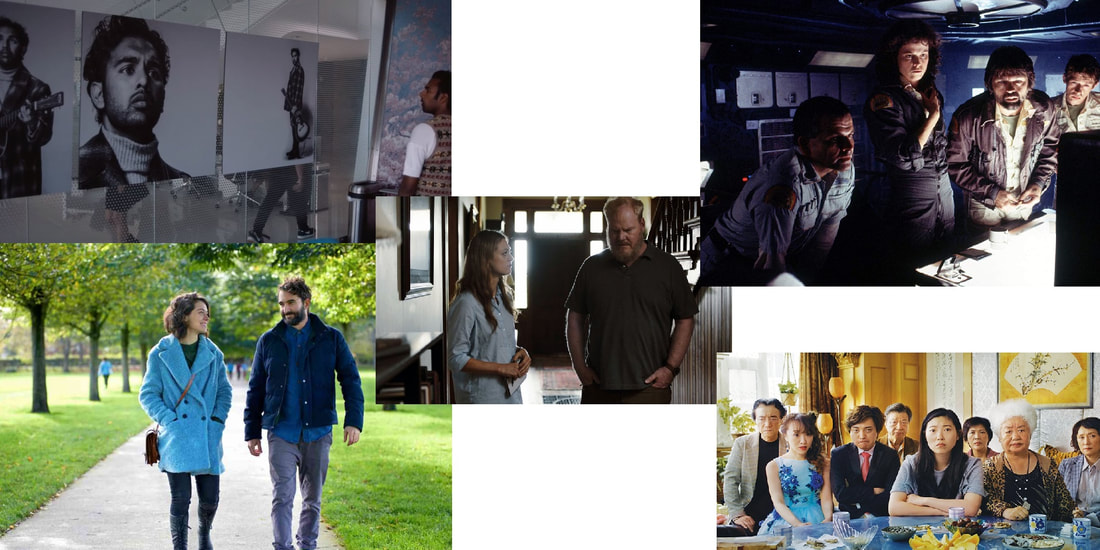
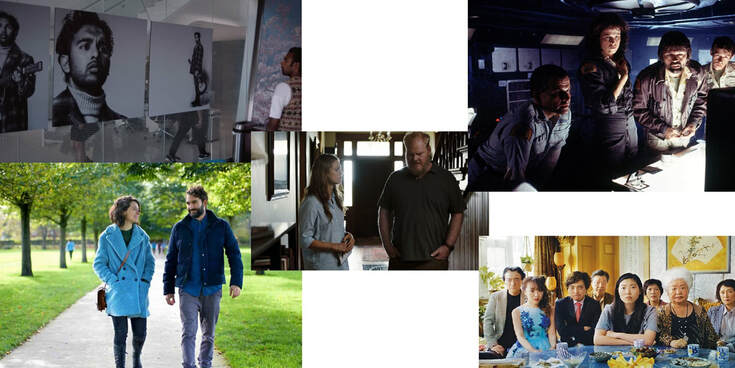

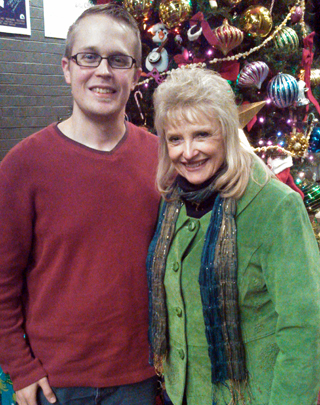
 RSS Feed
RSS Feed